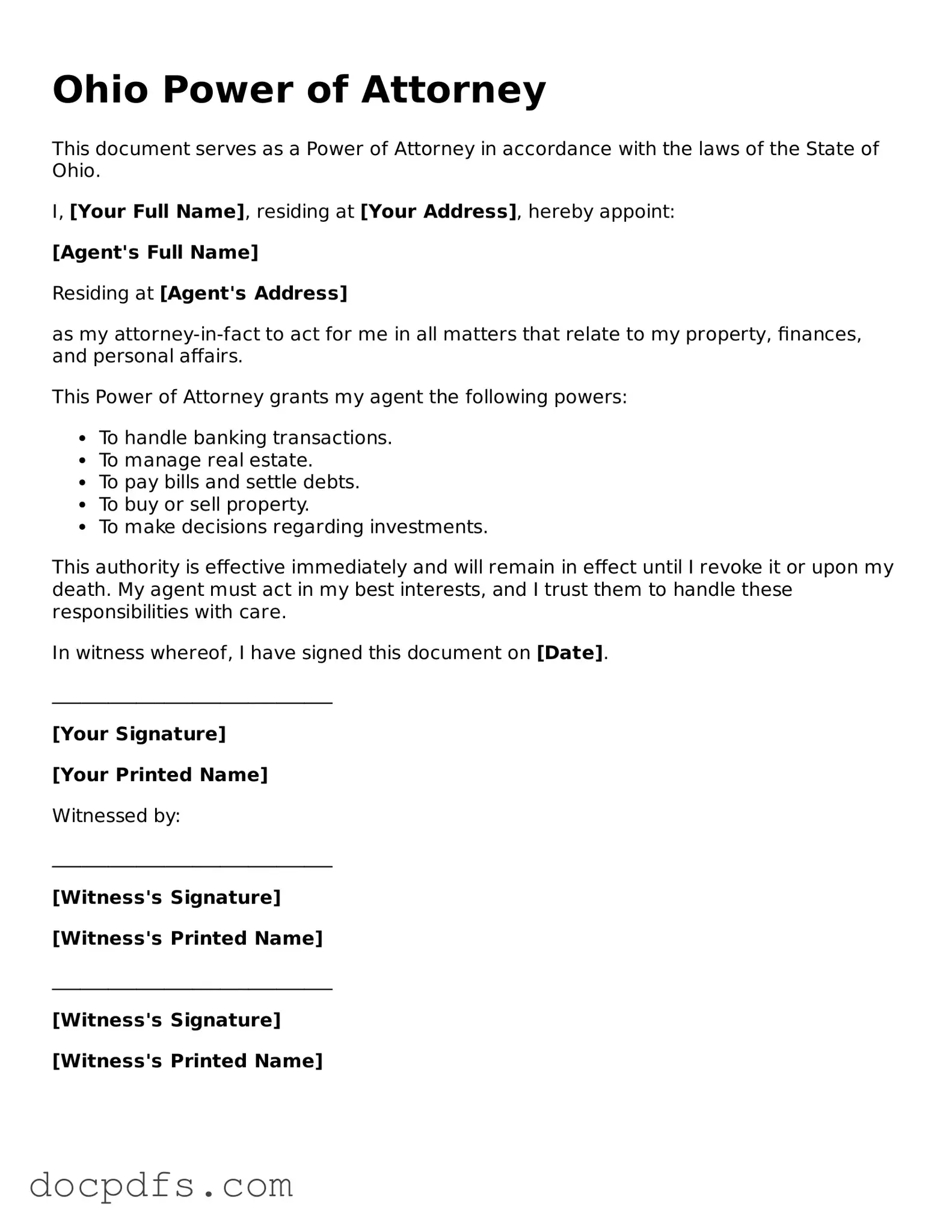What is a Power of Attorney in Ohio?
A Power of Attorney (POA) in Ohio is a legal document that allows one person, known as the principal, to grant another person, called the agent or attorney-in-fact, the authority to act on their behalf. This authority can encompass a wide range of decisions, including financial, medical, and legal matters. The principal must be of sound mind when creating the document, and it must be signed and notarized to be valid.
What types of Power of Attorney are available in Ohio?
Ohio recognizes several types of Power of Attorney, including:
-
General Power of Attorney:
Grants broad powers to the agent, allowing them to handle various affairs.
-
Durable Power of Attorney:
Remains effective even if the principal becomes incapacitated.
-
Limited Power of Attorney:
Restricts the agent's authority to specific tasks or time periods.
-
Healthcare Power of Attorney:
Specifically allows the agent to make medical decisions for the principal if they are unable to do so.
How do I create a Power of Attorney in Ohio?
To create a Power of Attorney in Ohio, follow these steps:
-
Choose a trusted individual to act as your agent.
-
Decide on the type of Power of Attorney you need.
-
Obtain a Power of Attorney form, which can be found online or through legal resources.
-
Complete the form, specifying the powers granted and any limitations.
-
Sign the document in the presence of a notary public.
Can I revoke a Power of Attorney in Ohio?
Yes, a Power of Attorney can be revoked in Ohio at any time as long as the principal is competent. To revoke, the principal should create a written notice of revocation and provide it to the agent and any relevant institutions or individuals. It is advisable to also destroy any copies of the original Power of Attorney to prevent confusion.
What happens if I become incapacitated and do not have a Power of Attorney?
If an individual becomes incapacitated without a Power of Attorney in place, a court may need to appoint a guardian to make decisions on their behalf. This process can be lengthy and costly, often requiring legal proceedings. Having a Power of Attorney in advance can help avoid this situation and ensure that trusted individuals make decisions aligned with the principal's wishes.
A Power of Attorney can be effective immediately or can be set to become effective only upon the principal's incapacitation, depending on the principal's wishes. If it is intended to be effective immediately, the agent can act on the principal's behalf right away. If it is a springing Power of Attorney, it will only take effect when a specified condition, such as incapacity, occurs.

